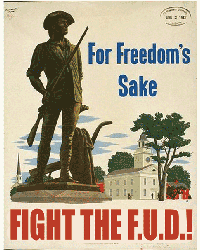 |
Nicodemus in his Cardinal's garb
(cappa magna not included) |
Today is the feast day of St. Nicodemus. Nicodemus features somewhat prominently in the gospel of John, appearing thrice throughout the gospel story. What we know for certain is that Nicodemus was a pharisee and a member of the Sanhedrin.
Recall that the pharisees were the comparatively 'populist' and more progressive of the two major socio-religious groups in that day (in comparison to the saducees, who were formed from the aristocracy and believed in a more conservative and literal interpretation of things). The Sanhedrin was the supreme religious body who decided on policy.
Thus, we see that Nicodemus is a moderate to liberal, highly placed member of the establishment who comes to this renegade preacher under cover of darkness to discuss things. And what does this man with great power and authority say to Jesus?
"Rabbi, we know that You have come from God
as a teacher; for no one can do these signs that You do unless God is with him." (Jn 3:2b)
This simple statement, the opening salvo in a relatively long and fruitcake-dense discussion, demonstrates that even among his greatest detractors where some who saw and recognized the power and truth in Jesus' message. Further, it underlines the delicate situation that Nicodemus (and others) were in.
There they were, the 'progressives' in a cut-throat battle with the 'conservatives' for the direction of the judaic faith under the thumb of Roman 'oppression' (oppression meaning acceptance of other gods) with the monastic ascetics (Essenes) and those who would purify Zion of infidels (the Zealots, who want to reenact the Maccabean rebellion) as minor players. Then comes this rebel preacher from the sticks who seems to speak with an authority which none have seen in hundreds of years. He has a syncretic approach to Judaism which is both familiar and yet very different from the current beliefs. To openly accept him would invite political (and personal) disaster, yet the signs are obvious to any who see that the messenger is from YHWH.
So, it comes to some hard questions.
Do the prelates respect centuries of tradition and preserve the church?
Do they heed their conscience and abandon the church they know?
Do they attempt to straddle the two and affect change within the church?
Nicodemus attempts the last, using his position to deflect the pharisees from arresting Jesus (Jn. 7) and then, after the crucifixion, he personally purchases the materials for burial and performs the Taharah of Christ's body (Jn. 19). History shows, however, that the Zealots 'win' the political struggle and incite a revolt which causes the destruction of the nation of Israel.
Examining the present situation in the RC community and the wholesale abandonment of Tradition, Ecclesiasties comes to mind, "We don't remember what happened in the past, and in future generations, no one will remember what we are doing now." (Eccl. 1:11)
So, what is to be learned from Nicodemus? Perhaps to be more generous in understanding the prelates and their position? Perhaps to be sensitive to personal conscience and it's function within our experience? Perhaps to refocus our attention to Tradition so we do not repeat the mistakes of the past? I will leave the answer as an exercise for the reader.















